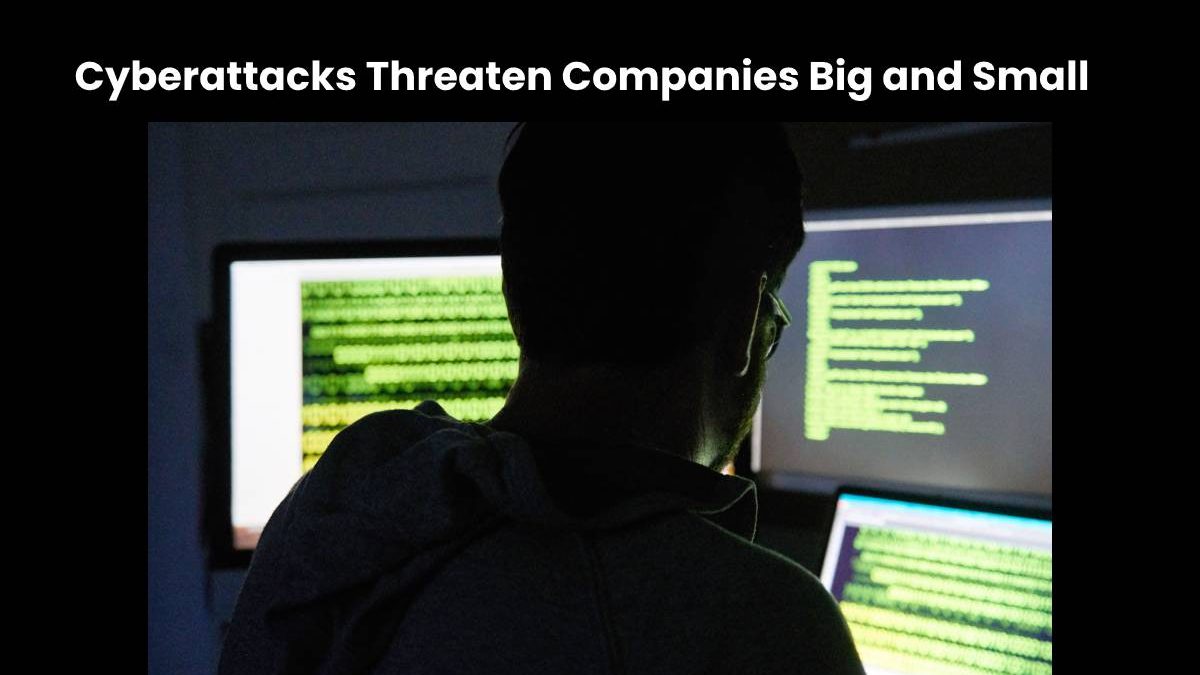Cyberattacks Threaten Companies Big and Small
If your business is small, you might be asking, “Is it really that vulnerable to cybersecurity threats? Aren’t hackers more interested in bigger businesses?” The truth is, small businesses are just as much of a target for hackers as large businesses, if not more so. In this post, we’ll tell you why it’s just as essential to protect your small business from cyber-threats and how you can learn more about protecting your business in a cybersecurity course.
Table of Contents
Small Businesses are Vulnerable to Cyberattacks Too: Here’s Why
Fewer resources
Small businesses usually have fewer resources devoted to cybersecurity. This means they’re often an easier target for hackers who want to exploit vulnerabilities. They also may not have the same security measures in place, such as firewalls, intrusion detection systems, etc.
Valuable data
Despite having less data than a large business, small businesses often have more sensitive data. This includes customer information like credit card numbers and home addresses. Hackers can use this information to commit identity theft or other crimes. Then, the small business may be held liable.
Reputation at stake
A small business’ reputation is often more fragile than a large business. A lone data breach can cause irreparable damage to a small business’ reputation. This can lead to significant losses in their customer base, and in turn, their revenue. Big businesses often have more resources to weather a data breach and a more extensive customer base. To a brand like McDonald’s, losing 1% of their business might not devastate them, but for small businesses, every sale counts.
Less awareness
There’s also often a lack of awareness about cybersecurity threats among small business owners and employees. This lack of awareness can make it easier for hackers to exploit vulnerabilities. In many cases, their business could be new, and it could be the business owner’s first foray into owning and operating a business. But if they learn how to protect their business from cyber-threats before an attack happens, they’re giving themselves and their business a powerful advantage.
Protecting Your Small Business from Cybersecurity Threats
So, what can you do to shield your small business from cybersecurity threats? Here are some tips:
Keep software up to date
One of the most useful and straightforward things you can do is keep all your software up to date. This includes the operating system, as well as any applications you use. Hackers often exploit vulnerabilities in outdated software to gain access to systems. So, keeping everything updated makes it more difficult for hackers to get in.
Use strong passwords
Another simple but vital measure is the use of strong passwords. This means using a mix of upper- and lower-case letters, numbers, and symbols. Avoid using words that can be found in the dictionary or using the same password for multiple accounts. If a hacker gets hold of one password, they’ll have access to all your accounts if they’re the same.
Install security measures
You can implement various security measures to further protect your small business from cybersecurity threats. These include firewalls, intrusion detection systems, and so on. Speak to a cybersecurity expert about the best measures for your business.
Educate employees
One of the most effective things you can do is educate your employees about cybersecurity threats. They should understand how to spot a phishing email, for example. They should also know what to do if they suspect a data breach. The more informed your employees are, the less likely it is your business will be successfully attacked.
Consider investing in blockchain technology
Finally, you may want to consider investing in blockchain technology. This is a relatively new technology that’s being used more and more in cybersecurity. It can help to protect your data from being tampered with or stolen.
For example, blockchain can be used to create digital signatures. This means you can be sure that the data hasn’t been tampered with and that it comes from a trusted source. Blockchain is also being used to create decentralized applications (dApps). These are applications that run on a blockchain network. Because they’re decentralized, they’re more secure than traditional applications.
Investing in a cybersecurity course for your employees can help them to understand this technology and how it can be used to benefit your business.
What are the Consequences of Cyberattacks?
Cyberattacks can have severe consequences for businesses of all sizes. Here are some of the most common:
- Loss of data: One of the most common consequences of a cyberattack is data loss. This could be customer data, financial data, or other sensitive information. A loss of data can be devastating for a business, as it can lead to a loss of customers and revenue.
- Loss or damage of reputation: Another common consequence of a cyberattack is the loss of reputation. This is especially true if the attack results in the loss of customer data.
- Loss of revenue: A cyberattack can also lead to a loss of revenue. This is because businesses may have to spend money to fix the damage caused by the attack and lost customers and reputation.
- Legal liability: In some cases, a business may also be liable for legal action if they are found to be responsible for a data breach. This could include class-action lawsuits or other legal action.
Cybersecurity Matters for Businesses of All Sizes
The bottom line is, cybersecurity is critical for businesses of all sizes. No business is too small to be targeted by hackers. The best way to protect your business is to educate yourself and your employees about cybersecurity threats and how to prevent them. One of the ways you can do this is by taking a cybersecurity course that will teach you about the various types of cyberattacks.

